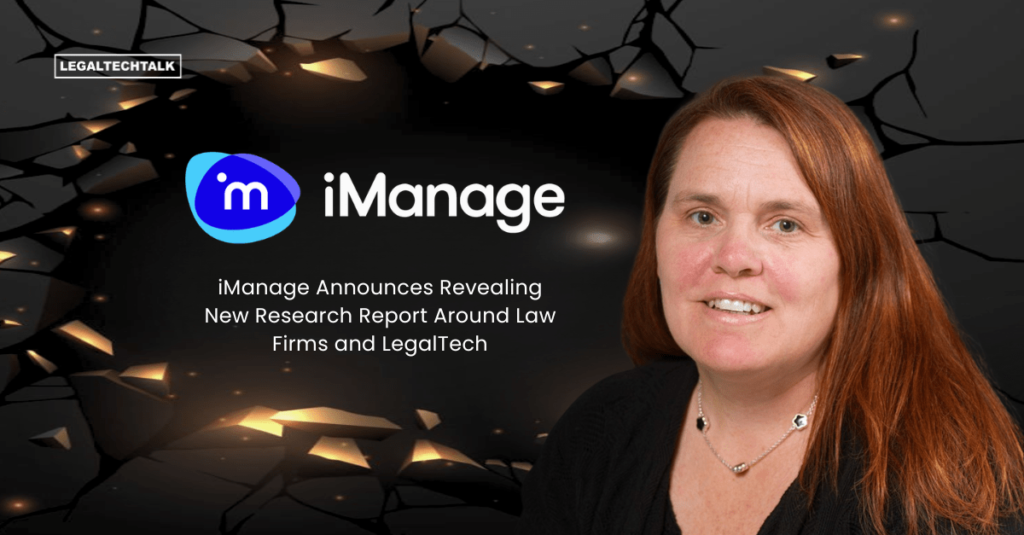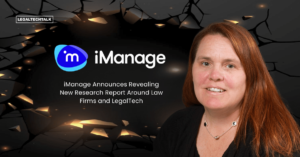iManage, the company dedicated to Making Knowledge Work™, announced the availability of a new research report – Ground your legal AI strategy firmly in the basics – that distills survey responses from more than 1,200 legal professionals across the United States, UK, EMEA, and Asia Pacific, providing a strong global perspective on lawyers’ views regarding technology and legal operations. Notably, respondents crave a strong core set of foundational tools around document and email management. As firms advance in their technical sophistication, these tools can be enhanced with added capabilities like those promised by AI.
The survey, conducted by SA Market Insights, reveals that respondents prioritize fundamental technology features such as repositories for storing and retrieving precedents and templates; automated monitoring to ensure compliance; compatibility with e-discovery platforms; and internal real-time collaboration tools and workspaces.
This prioritization of bedrock competencies before looking to more advanced capabilities like generative AI indicates that there is still room for law firms to improve the effectiveness of existing technology investments and a need to make this a priority. A renewed commitment to promoting efficiency, security, and collaboration via foundational systems such as document management may be needed. This was identified as an essential bridge to enabling employees to achieve proficiency in applying any AI capabilities an organization introduces.
The report also reveals that many organizations invest in a document management system (DMS), only to find that low adoption makes it a challenge to realize the targeted ROI of their technology. Low user adoption stems from a variety of issues. Most of these can be resolved by using effective solutions and document management practices that allay pain points around cumbersome security requirements, ineffective search, or constant switching between tools. Research shows that customer success also relies heavily on the availability of training and ongoing support after new solutions are introduced.
“As law firms evaluate the potential of AI capabilities, it is equally critical for legal leaders to assess their foundational technology stack, with a keen eye on usage,” said Joy Ganvik CEO at SA Market Insights. “This assessment should identify any gaps, determine the steps needed to fill them, and prioritize firm-wide adoption of current capabilities to be certain that any future investment in AI is maximally effective.”
The survey that informs the research report took place between December 2024 and January 2025. Respondents were evenly divided between firms with 50 or fewer employees, 51–250 employees, and more than 250 employees. Most of the respondents are lawyers with 5 to 20 years of experience, many of whom have been at their current firms for a significant portion of their careers.
“The insights in this new report provide a valuable roadmap for firms still contemplating how to invest in solutions that enable them to keep growing into the future capabilities that AI can offer,” said Laura Wenzel, Global Marketing & Insights Director. “Understanding what legal professionals need to efficiently manage their document workflows can help organizations make informed, strategic DMS investments that drive adoption, deliver lasting value, and set the stage for effective use of advanced technologies.”








